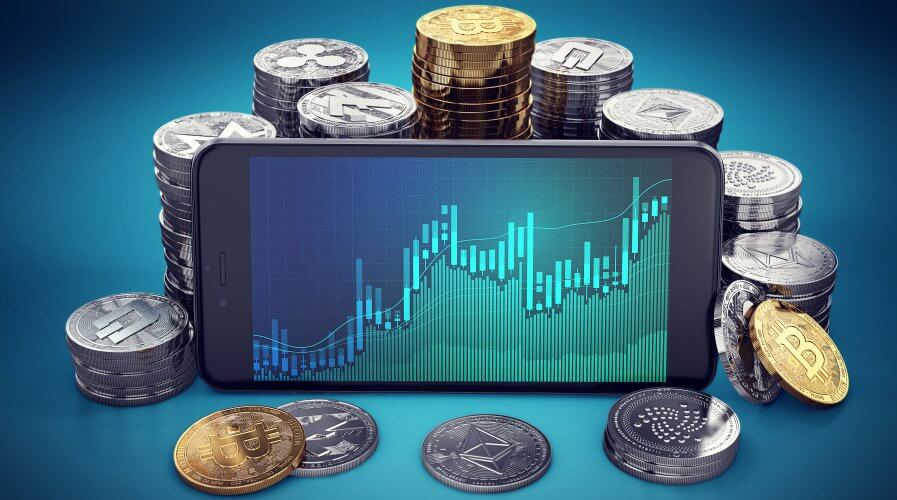
The hack has drawn into focus Japan’s approach to regulating cryptocurrency exchanges. Source: Shutterstock
Cryptocurrencies are gaining ground in the Philippines
CRYPTOCURRENCIES are on the rise in the Philippine markets, according to Melchor Plabasan, the deputy director of the country’s central bank, Bangko Sentral ng Pilipinas (BSP).
In an interview with ABS-CBN On The Money, Plabasan said that cryptocurrencies are an emerging, powerful trend in the financial sector, with transactions growing significantly over the past few years.
While the spread of bitcoin is undeniable, the BSP executive asserted that a huge priority right now is the regulation of cryptocurrencies. In a statement to ABS-CBN, Plabasan stated that security measures must be rolled out and enforced on customers’ virtual wallets, to ensure that the system’s inherent risks are managed.
“It’s like any other monetary instrument. There are risks, but essentially, it can be managed. If you want something that is fast, near real-time and convenient then there’s the benefit of using (cryptocurrency),” he said, according to an ABS-CBN report.
Just a few years ago, global transactions conducted through cryptocurrencies were recorded at roughly US$2 million to US$3 million daily. Today, this number has increased significantly, with daily cryptocurrency transactions reaching as high as US$6 million.
ANC Interview with Miguel Cuneta, COO of SCI and Melchor Plabasan Deputy Director of BSP regarding Bitcoin use is… https://t.co/msEW5OCXLi
— Emerson Fonseca (@CryptoFonzy) October 16, 2017
In a lot of ways, bitcoin and other cryptocurrencies are quite daunting, in the way that so much of online financial transactions could be done entirely anonymously. This has caused bitcoin deniers to shun the emerging online payment system, stating that it could easily be a hotbed for money laundering and other questionable financial activities.
Regardless of this, Plabasan nonetheless emphasized the fact that safeguards such as anti-money laundering controls and Know-Your-Customer (KYC) practices would help curb the risks associated with cryptocurrencies.
While the Philippines is a country that is still in the process of fully accepting and integrating cryptocurrencies into its financial system, Miguel Cuneta, co-founder and chief community officer of Satoshi Citadel Industries, expressed his optimism about the BSP’s initiatives on cryptocurrencies.
Cuneta, for one, described the BSP as “very progressive,” and that the national bank is actively involving stakeholders while drafting the country’s cryptocurrency rules. He also likened the spread of cryptocurrencies to the mainstream introduction of the internet a couple of decades ago.
Talking #Bitcoin, #blockchain, and regulations with Ms. @SalveDuplito and @BangkoSentral rep sir Mel Plabasan on @ANC_OnTheMoney. #fintech pic.twitter.com/yfkvTD96Mn
— Miguel Cuneta (@MiguelCuneta) September 4, 2017
“I would liken it to the Internet back in the 90s. Back then, the Internet is so new people were afraid of it,” Cuneta said to ABS-CBN.
“Now, everybody has the Internet, we don’t go online anymore, we live online.”
The continued maturation of cryptocurrencies in the Philippine market is something that could be beneficial not only for consumers but small and emerging businesses as well. The Philippines, after all, is home to multitudes of Internet users.
As of 2016, roughly 60 percent of the country’s roughly 100 million citizens are connected to the Internet. This year, an estimated 30 percent of the country has exclusive access to a smartphone, most of them getting internet access through 3G and EDGE signals.
This makes the market for online payments very lucrative in the country. Currently, the Philippines is still heavily saturated with traditional and conventional remittance systems, with services such as local, over-the-counter money transfers still being used widely by many Filipinos when transferring funds.
With bitcoin and other cryptocurrencies making their way to the Philippine market, Filipinos could soon enjoy a faster, significantly cheaper, and more secure way of managing their funds. The spread of cryptocurrency use in the country, if any, would make paying for services and goods online much faster.
READ MORE
- The criticality of endpoint management in cybersecurity and operations
- Ethical AI: The renewed importance of safeguarding data and customer privacy in Generative AI applications
- How Japan balances AI-driven opportunities with cybersecurity needs
- Deploying SASE: Benchmarking your approach
- Insurance everywhere all at once: the digital transformation of the APAC insurance industry






